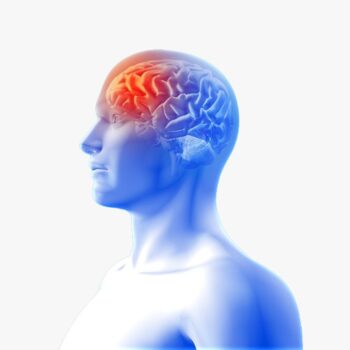Homeopathic remedies for Migraines
A migraine is a type of headache that is usually accompanied by a pulsing or throbbing pain on one side of the head. Migraines are often accompanied by other symptoms, such as sensitivity to light, noise, and smell; nausea; and vomiting.
There is no cure for migraines, but there are treatments that can help to relieve symptoms and prevent migraines from occurring. Over-the-counter pain relievers, such as aspirin, ibuprofen, or acetaminophen, can help to relieve the headache pain associated with migraines. In some cases, your doctor may prescribe medication specifically designed to prevent migraines or to treat the symptoms of an attack.
Lifestyle changes, such as getting regular exercise, eating a healthy diet, and getting enough sleep, can also help to reduce the frequency and severity of migraines. Stress management techniques, such as deep breathing, meditation, and yoga, may also be helpful in preventing migraines.
If you are experiencing migraines, it is important to see a doctor for an accurate diagnosis and appropriate treatment plan. Your doctor may recommend keeping a headache diary to help identify triggers for your migraines, such as certain foods, stress, or changes in sleep patterns.
Cause of migraines
The exact cause of migraines is not fully understood, but it is thought to be related to changes in the levels of certain chemicals in the brain and changes in the blood flow to the brain. Some of the factors that may trigger a migraine include:
Hormonal changes: Migraines are more common in women, and many women report that their migraines occur during their menstrual cycle or during menopause.
Stress: Stress, both physical and emotional, is a common trigger for migraines.
Diet: Certain foods, such as aged cheeses, chocolate, and processed foods, can trigger migraines in some people. Skipping meals or fasting can also trigger migraines.
Weather changes: Changes in weather patterns, such as barometric pressure changes, can trigger migraines.
Sensory stimuli: Bright lights, loud noises, and strong smells can all trigger migraines in some people.
Symptoms of a migraine
The symptoms of a migraine can vary from person to person, but common symptoms include:
Throbbing or pulsing headache pain, often on one side of the head
Sensitivity to light, noise, and smells
Nausea and vomiting
Blurred vision
Lightheadedness or dizziness
In some cases, a person may experience a warning symptom called an aura before a migraine. An aura can include symptoms such as visual disturbances, such as flashing lights or blind spots, or tingling or numbness in the face or hands.
It’s important to note that not everyone experiences all of these symptoms, and the symptoms of a migraine can vary from attack to attack. If you are experiencing migraines, it is important to see a doctor for a proper diagnosis and treatment plan.
Homeopathic remedies are a form of alternative medicine that are based on the principle of “like cures like.” In other words, a substance that causes symptoms in a healthy person is thought to cure similar symptoms in a person who is sick. While there is limited scientific evidence to support the effectiveness of homeopathic remedies for migraines, some people find relief from their symptoms with these treatments.
Here are some commonly used homeopathic remedies for migraines, based on specific symptoms:
Belladonna: This remedy is recommended for migraines that come on suddenly, with intense, throbbing headache pain that is worse on one side of the head. The headache may be accompanied by sensitivity to light and sound, and there may be flushing or redness of the face.
Bryonia: This remedy is recommended for migraines that are accompanied by a headache that is worse with movement and better with pressure. The headache may be accompanied by nausea and vomiting.
Gelsemium: This remedy is recommended for migraines that are preceded by an aura, such as visual disturbances or tingling in the face or hands. The headache may be accompanied by a heavy, dull pain that is worse on one side of the head.
Ignatia: This remedy is recommended for migraines that are accompanied by emotional stress, such as anxiety or grief. The headache may be accompanied by mood swings and tenderness in the neck and shoulders.
It is important to keep in mind that homeopathic remedies are not a substitute for conventional medical treatment and it’s always best to consult with a doctor to get a proper diagnosis and treatment plan. It’s also important to note that not all homeopathic remedies are safe or effective, and some can interact with conventional medications.




